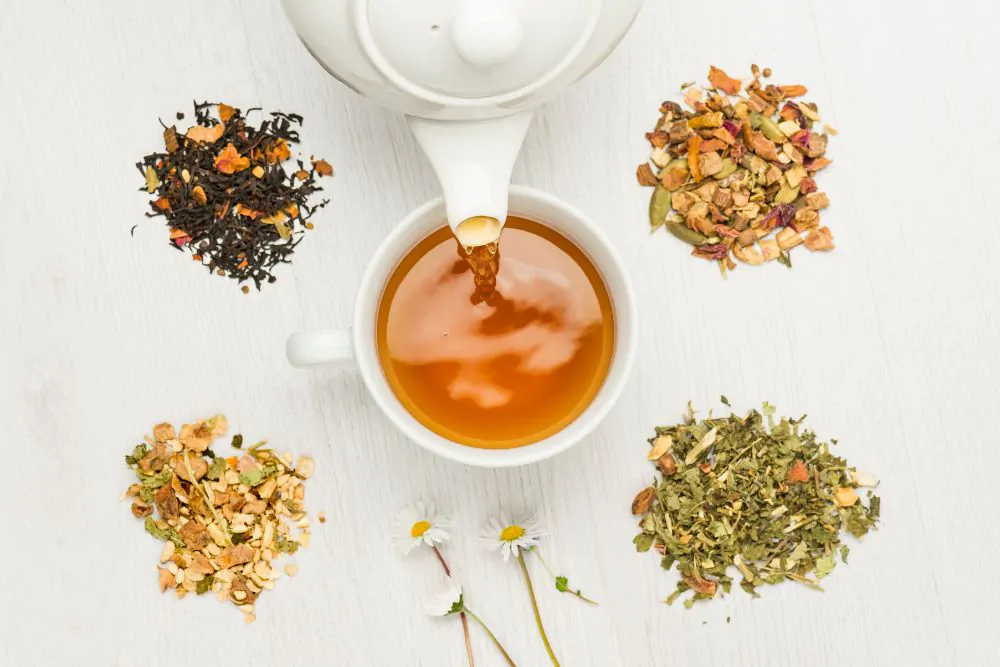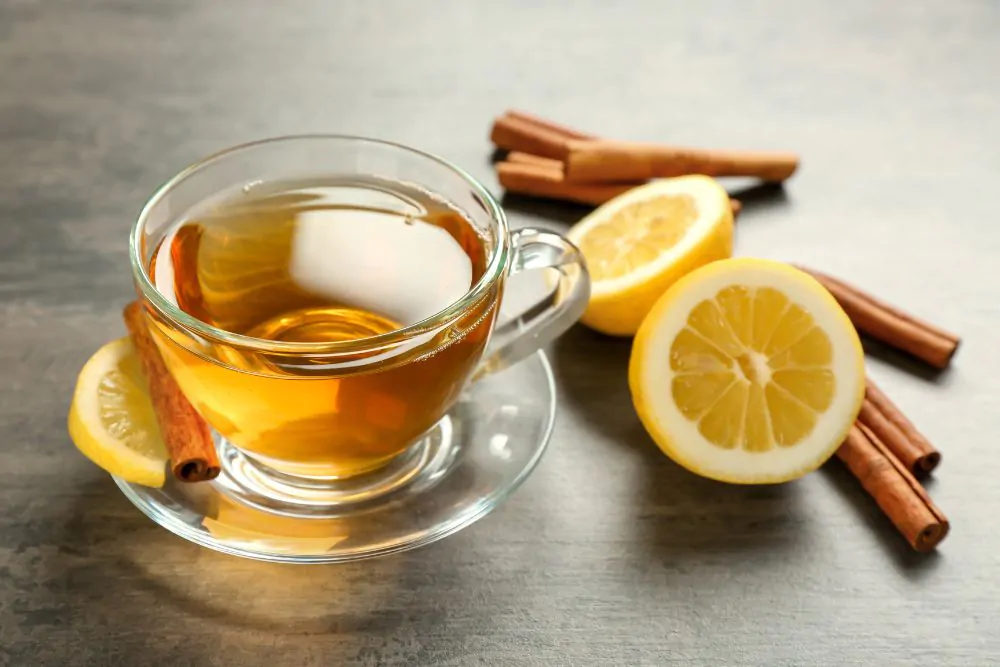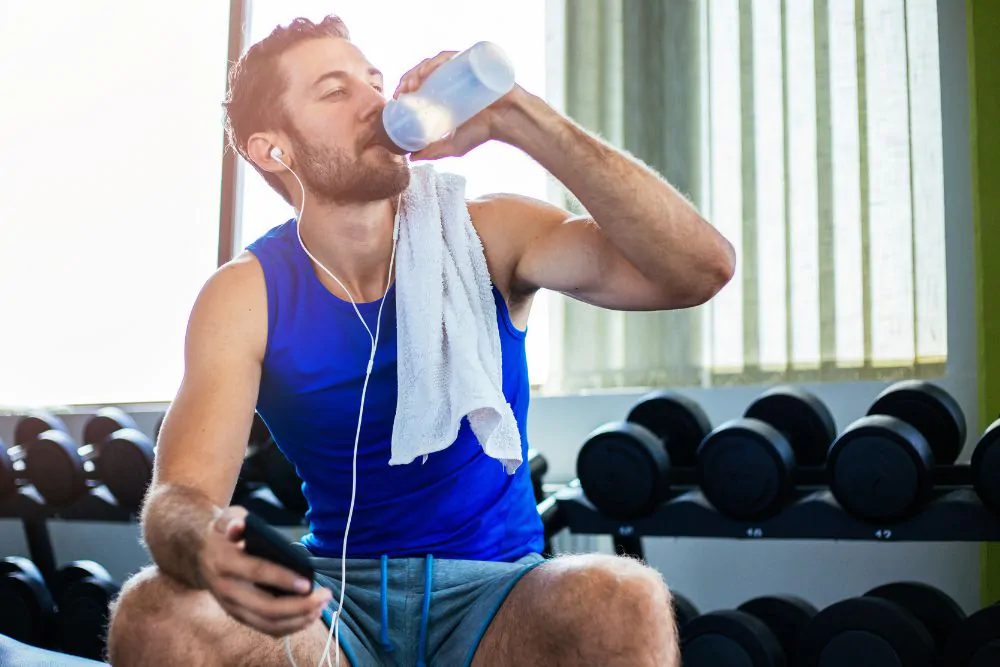Discover what you must know about tea hydration. We also compare tea vs. water.

Water is the purest form of hydration. If you want to survive, you need to stay hydrated. But how much water should you drink a day? And is it possible to swab water with other liquids such as tea or juices?
Most types of tea are primarily composed of water, which helps contribute to your daily fluid intake. Tea also contains antioxidants and certain minerals that can benefit your health. However, some teas, like English Breakfast tea, contain caffeine.
Large amounts, i.e., five or six cups a day, can have a mild diuretic effect, causing your body to lose water.
Water Hydration
Water breaks down food and nutrients. When you drink water before a meal, it will help digestion run quickly and efficiently. In the intestines, water is absorbed and transferred to the rest of your body in the blood.
Other than the intestines, water aids your kidneys in detoxing the blood from waste and toxins.
According to researchers, caffeine needs to be consumed in amounts greater than 500 mg. For tea drinkers, that equates to between six and over a dozen cups of tea per day. Not every type of tea has the same amount of caffeine.
Black and green tea have a much higher caffeine level than herbal tea.
Since tea is also a form of water but with substances, it keeps you hydrated. Besides that, drinking tea daily in a moderate amount will also boost your energy, protect your heart health, and mental health, support weight loss, and regulate blood sugar.
Is Tea Good for Hydration?

Tea can be a perfect hydration solution as long as you consume it in a moderate amount. Keeping control of your tea intake also makes sure the diuretic effect doesn’t affect your hydration. You might also be interested in our article debunking coffee myths.
With tea, you can add natural flavors such as lime juice, fruit, cinnamon, or nutmeg to enhance the flavor and keep your hydrating habit on the right track. Plus, tea has many potential health benefits other than just rehydrating you. It provides antioxidants, flavonoids, and polyphenol antioxidants to prevent cell damage and spruce up your skin from free radicals.
What Do Water And Tea Hydration Have In Common?
Both tea and water flush toxins and waste out of your body and contribute to your overall health, such as aiding weight loss and controlling blood sugar. Water doesn’t contain caffeine. And even though tea has caffeine, it does not have a significant diuretic effect to make you dehydrated.
If you don’t exceed a maximum amount of tea per day, which is around 13 cups, there’s nothing to fret over. Tea is a great alternative to add to your daily water consumption but is not a replacement. Try herbal tea instead if you cannot tolerate caffeine.
| Tea for Hydration | Water for Hydration | |
| Contains caffeine | Yes | No |
| Diuretic effect | Can have a diuretic effect | Doesn’t have a diuretic effect |
| Flavor variety | Makes a fun alternative to water that can be mixed with other flavors | Plain, though flavor can be added with infusions or drink mixes |
| Nutrient content | Contains antioxidants that prevent cell damage | Contains minerals and other inorganic compounds, such as calcium |
| Effect on cholesterol | Varies, some teas may have beneficial effects | Helps maintain overall hydration, which supports health |
| Price | Prices vary | Affordable, but can vary based on source and treatment |
What’s Better About Hydrating With Water?
Water is an inevitable source of energy for our daily life. We can go by without tea, but we can’t live without water. When water is absent in your body, your skin will be more vulnerable to skin disorders and premature aging.
Water is also the reason behind sweating. When stored in the middle layers of the skin, water will emerge to the surface in the form of sweat. As the sweat evaporates, it cools the body down.
Without water, you will experience digestive problems, constipation, and an acidic stomach. Your blood will also get thicker without enough water, causing high blood pressure.
Who Should Drink Tea For Hydration (And Why)?
You can drink tea to retain water as long as your body doesn’t react to caffeine negatively. Adding tea to your daily drinking habit mixes things up flavor-wise whenever you want to find something fun to replace the water once in a while. Sipping on hot tea is a stellar way to stay hydrated when it’s cold.
Who Should Drink Water For Hydration (And Why)?

Everyone can drink water for hydration. It’s the safest, purest form of liquid to keep you hydrated, especially for athletes likely to break a sweat. Athletes and people who are trained or work in intense working conditions have to drink more water to help the body retain more fluids.
